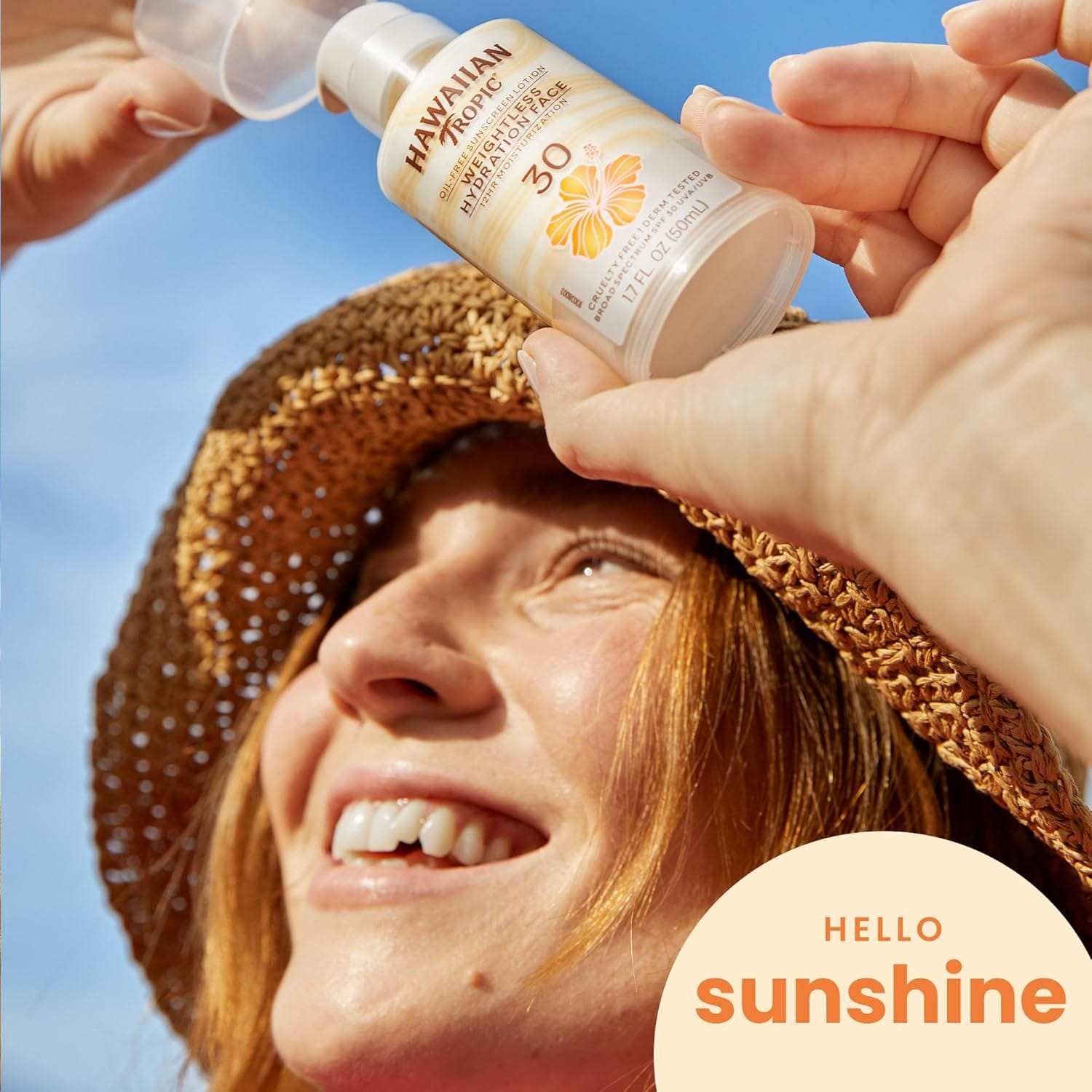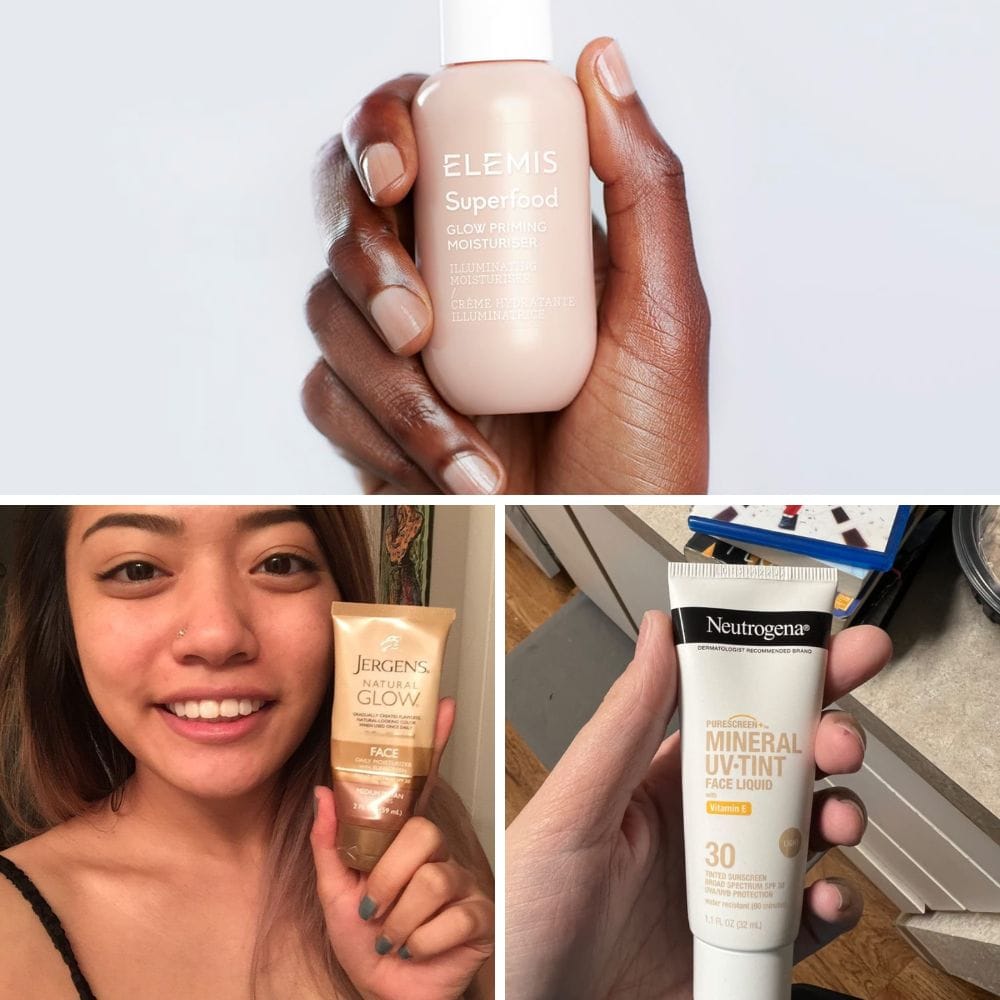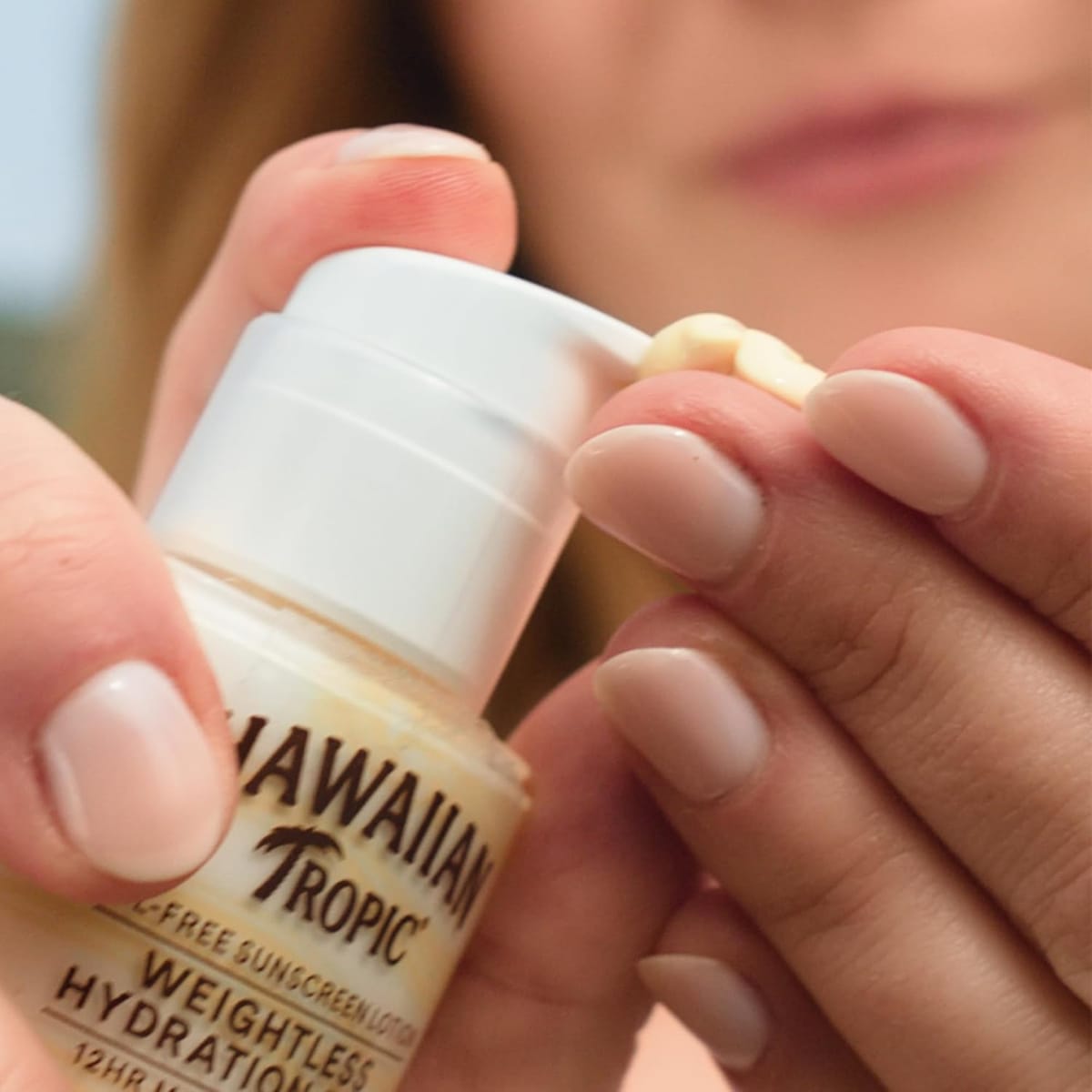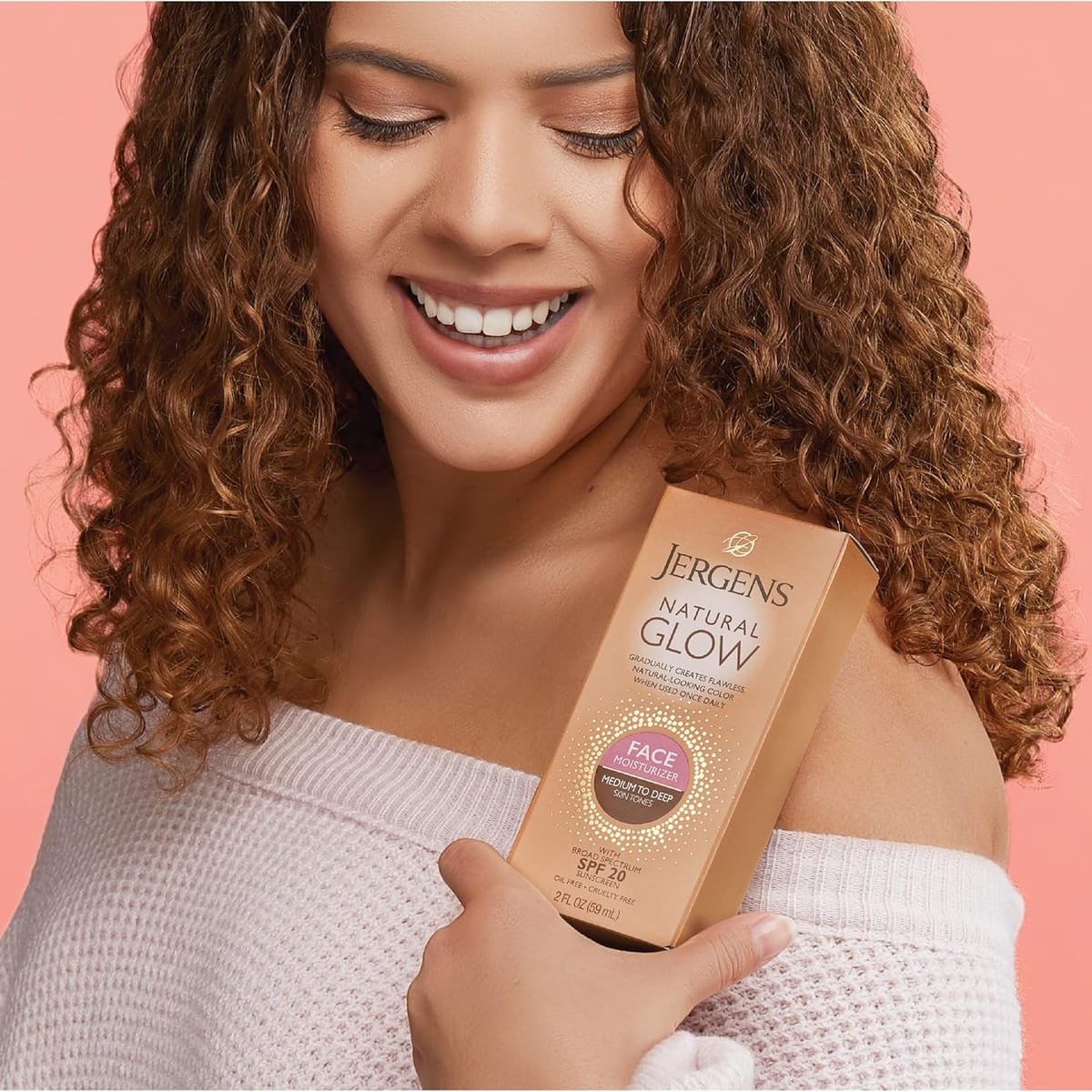Key Takeaways:
- Order Matters: Applying sunscreen after moisturizer ensures better protection.
- Skin Type Considerations: Different skin types may require specific application methods.
- Consistency is Key: Regular application and reapplication of sunscreen are crucial for effective sun protection.
Introduction
The debate over whether to apply sunscreen before or after moisturizer has been a hot topic in skincare circles for years. Understanding the correct order is essential for maintaining healthy skin and providing adequate sun protection. This article delves into the science behind sunscreen and moisturizer application, offering practical advice for different skin types and daily routines.
The Importance of Sunscreen
Sunscreen is a non-negotiable part of any skincare regimen. It protects the skin from the sun's harmful UV rays which can cause skin cancer, premature aging, and other skin damage. Regular sunscreen use is crucial for maintaining healthy skin and preventing the harmful effects of sun exposure.
Understanding Sunscreen Types
There are two main types of sunscreens: chemical and physical (mineral). Chemical sunscreens absorb UV radiation, while physical sunscreens, like zinc oxide and titanium dioxide, reflect it. Each type interacts differently with the skin and other skincare products, influencing the order of application.
The Role of Moisturizer
Moisturizers keep the skin hydrated and form a protective barrier against environmental aggressors. They come in various formulations, including creams, lotions, and gels, each suited for different skin types. Applying moisturizer correctly is vital for maintaining skin texture and health.
Applying Moisturizer Before Sunscreen
Applying moisturizer first can help keep the skin hydrated and create a smooth base for sunscreen. This method is particularly beneficial for those with dry skin, as it ensures that the skin remains moisturized throughout the day. However, it's essential to wait a few minutes after applying moisturizer to allow it to absorb fully before applying sunscreen.
Applying Sunscreen Before Moisturizer
Some argue that applying sunscreen before moisturizer can provide a more direct layer of protection against the sun's rays. However, this method can sometimes interfere with the effectiveness of the sunscreen, especially if the moisturizer contains active ingredients that may react with the sunscreen.
The Consensus: Sunscreen After Moisturizer
Most dermatologists recommend applying sunscreen after moisturizer. This order ensures that the sunscreen forms an even, protective layer on the skin's surface, providing adequate sun protection. Moisturizers can sometimes dilute sunscreen, reducing its effectiveness if applied afterward.
Skin Type Considerations
Different skin types may require specific application methods. For instance, those with oily skin might prefer a lightweight, non-comedogenic sunscreen, while individuals with sensitive skin might opt for a mineral sunscreen with soothing ingredients. Understanding your skin type is crucial for choosing the right products and application order.
Choosing the Best Sunscreen
Selecting the best sunscreen involves considering factors like SPF, formulation, and skin type. A broad-spectrum sunscreen with at least SPF 30 is recommended for daily use. For those with sensitive skin, mineral sunscreens with zinc oxide or titanium dioxide are ideal.
Sunscreen for Different Skin Tones
People with darker skin tones might believe they don't need sunscreen, but this is a misconception. Everyone, regardless of skin tone, should wear sunscreen to protect against UV radiation and prevent skin damage.
Sunscreen for Sensitive Skin
Individuals with sensitive skin should opt for sunscreens with gentle, soothing ingredients. Mineral sunscreens are often recommended as they are less likely to irritate. It's also advisable to perform a patch test before using a new sunscreen.
Sunscreen and Skin Texture
Regular sunscreen use can improve skin texture by preventing sun damage and promoting healthy skin. Sun exposure can lead to rough, uneven skin texture, but consistent sunscreen application helps maintain smooth, even skin.
Sunscreen and Environmental Factors
When considering when to apply sunscreen before or after moisturizer, it's crucial to account for environmental factors. The sun's harmful UV rays can vary in intensity based on location, altitude, and time of year. For instance, higher altitudes and equatorial regions experience stronger UV radiation, necessitating a more robust sun protection strategy. Using a broad-spectrum sunscreen can provide adequate sun protection against both UVA and UVB rays, ensuring your skin remains healthy and protected.
Moreover, environmental pollutants can also impact how sunscreen interacts with your skin. Pollutants can break down the active ingredients in both chemical sunscreen and physical sunscreen, reducing their effectiveness. Therefore, it's essential to apply moisturizer and sunscreen correctly to maintain a protected skin barrier. This approach not only shields your skin from the sun's rays but also harmful environmental factors, keeping your skin healthy and radiant.
Sunscreen and Outdoor Activities

When engaging in outdoor activities, ensuring your skin is protected from the sun's harmful UV rays is paramount. Whether you're hiking, swimming, or simply enjoying a day at the park, the sun's rays can cause significant damage if proper precautions aren't taken. Applying a broad-spectrum sunscreen that shields against both UVA and UVB rays is essential. Remember to reapply every two hours, especially if you're sweating or swimming, to maintain effective protection.
Outdoor enthusiasts should also consider the type of sunscreen they use. Water-resistant formulas are ideal for activities involving water or excessive sweating. Additionally, using sunscreen with a higher SPF can provide extended protection during prolonged exposure to the sun's harmful rays. Don't forget to cover often-missed spots like the ears, back of the neck, and tops of the feet. By taking these steps, you can enjoy your outdoor adventures while keeping your skin protected.
Sunscreen and Environmental Factors
Environmental factors play a significant role in determining how effective your sunscreen is. Pollution, for instance, can break down the active ingredients in sunscreen, reducing its ability to protect your skin from the sun's harmful UV rays. Additionally, high humidity levels can cause sunscreen to wear off more quickly, necessitating more frequent reapplication. It's crucial to consider these factors when choosing a sunscreen that fits your lifestyle and environment.
Moreover, altitude can also impact the effectiveness of sunscreen. At higher altitudes, the sun's UVB rays are more intense, increasing the risk of sunburn. Therefore, if you live in or are traveling to a high-altitude area, you should opt for sunscreen with a higher SPF. This ensures that your skin remains protected from the sun's harmful rays, regardless of the environmental conditions you encounter.
Sunscreen and Environmental Factors
The sun's harmful UV rays are not the only environmental factors that can affect your skin. Pollution, wind, and even blue light from screens can contribute to skin damage. Sunscreen acts as a shield, protecting your skin from these elements. For instance, urban environments with high pollution levels can exacerbate the effects of the sun's rays, making it crucial to incorporate sunscreen into your daily routine.
Moreover, the sun's UVB rays are particularly harmful, causing sunburn and increasing the risk of skin cancer. By using a broad-spectrum sunscreen you can protect your skin from both UVA and UVB rays. This is especially important for those who spend a lot of time outdoors or live in sunny climates. Remember, the sun's harmful rays can penetrate through clouds and windows, so daily application is essential.
Sunscreen and Seasonal Changes
Seasonal changes can significantly impact how your skin reacts to the sun's rays. During summer, the sun's UVB rays are more intense, necessitating a higher SPF sunscreen. Conversely, in winter, while the sun's harmful rays may seem less potent, they can still cause damage, especially when reflected off snow. Therefore, it's crucial to adjust your sunscreen routine according to the season.
In addition, the type of sunscreen that fits your skin type may vary with the seasons. For example, a lightweight, non-greasy formula might be preferable in the summer to avoid excess oiliness, while a more hydrating sunscreen could be beneficial in the winter to combat dryness. Understanding these nuances ensures that your skin remains protected year-round.
Sunscreen and Water Resistance
Water resistance is another critical factor to consider when selecting a sunscreen. If you plan to swim or engage in activities that cause you to sweat, a water-resistant sunscreen is essential. These sunscreens are formulated to stay on your skin longer, even when exposed to water, providing continuous protection from the sun's rays. However, it's important to note that no sunscreen is entirely waterproof, so reapplication is necessary after swimming or heavy sweating.
Water-resistant sunscreens are particularly beneficial for outdoor sports enthusiasts. Whether you're surfing, running, or hiking, these sunscreens ensure that you remain protected from the sun's harmful UV rays. Always check the label for the duration of water resistance, typically 40 or 80 minutes, and reapply accordingly to maintain optimal protection.
Sunscreen and Anti-Aging Benefits
Incorporating sunscreen into your daily skincare routine can significantly contribute to anti-aging efforts. The sun's UVB rays are notorious for accelerating the aging process, leading to wrinkles, fine lines, and age spots. By applying sunscreen regularly, you can prevent these signs of premature aging and maintain a youthful complexion. Choose a sunscreen that fits seamlessly into your skincare regimen, ensuring it doesn't interfere with other products you use.
Moreover, many modern sunscreens come with added skincare benefits, such as hydrating properties and antioxidants. These ingredients not only protect your skin from the sun's harmful rays but also nourish and repair it. For instance, a sunscreen with hyaluronic acid can keep your skin hydrated, while one with vitamin C can help brighten your complexion. By selecting a sunscreen that offers these additional benefits, you can enhance your anti-aging routine and keep your skin looking its best.
Sunscreen and Hydration Levels
Hydration plays a pivotal role in maintaining skin health, especially when deciding whether to apply sunscreen or moisturizer first. Moisturizers help lock in hydration, creating a smooth base for sunscreen application. This is particularly important for those with dry skin, as a well-hydrated base ensures that the sunscreen can spread evenly and provide adequate sun protection. Applying moisturizer before sunscreen can help maintain the skin's hydration levels, ensuring that the skin remains supple and protected from the sun's harmful rays.
On the other hand, some sunscreens come with hydrating properties, which can be beneficial for those with oily or combination skin. These sunscreens can double as a moisturizer, simplifying your skincare routine. However, it's essential to choose a sunscreen that fits your skin type and needs. Whether you opt for a chemical sunscreen or a physical sunscreen, ensuring that your skin is well-hydrated will help keep it protected from the sun's UVB rays and other environmental stressors.


Can I mix sunscreen with my moisturizer?
Mixing sunscreen with moisturizer is not recommended as it can dilute the sunscreen, reducing its effectiveness. Apply each product separately to ensure optimal protection and hydration.
How often should I reapply sunscreen?
Sunscreen should be reapplied every two hours, especially after swimming or sweating. This practice ensures continuous protection against the sun's harmful rays.
What type of sunscreen is best for sensitive skin?
Mineral sunscreens containing zinc oxide or titanium dioxide are ideal for sensitive skin. These ingredients offer broad-spectrum protection and are less likely to irritate compared to chemical sunscreens.

Understanding the correct order of applying sunscreen and moisturizer is crucial for maintaining healthy skin and providing adequate sun protection. Most dermatologists recommend applying sunscreen after moisturizer to ensure an even, protective layer. Different skin types may require specific application methods, and incorporating sunscreen into your daily routine is essential for long-term skin health.











